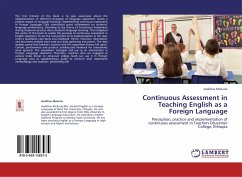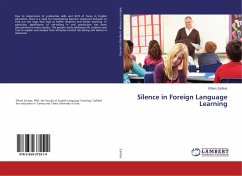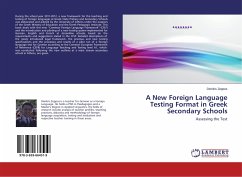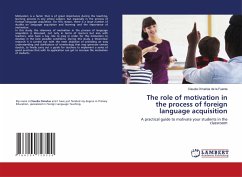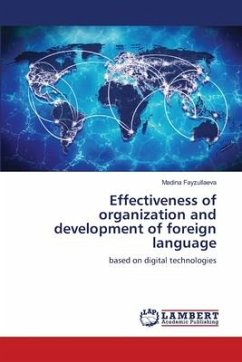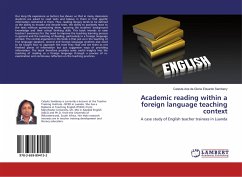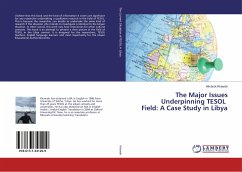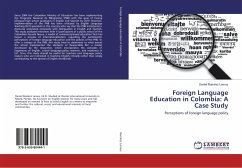
Foreign Language Education in Colombia: A Case Study
Perceptions of foreign language policy
Versandkostenfrei!
Versandfertig in 6-10 Tagen
58,99 €
inkl. MwSt.

PAYBACK Punkte
29 °P sammeln!
Since 2004 the Colombian Ministry of Education has been implementing the Programa Nacional de Bilingüismo (PNB) with the goal of having bilingual high school graduates in English and Spanish by 2019. However, implementation of the PNB has been criticized by English Language Teaching (ELT) specialists in the country who say that the PNB introduced a discourse associated exclusively with bilingualism in English and Spanish. This study analyzed interviews with 15 participants of a public school of the Colombian Escuela Nueva, a model of community-based education that has begun a process of inter...
Since 2004 the Colombian Ministry of Education has been implementing the Programa Nacional de Bilingüismo (PNB) with the goal of having bilingual high school graduates in English and Spanish by 2019. However, implementation of the PNB has been criticized by English Language Teaching (ELT) specialists in the country who say that the PNB introduced a discourse associated exclusively with bilingualism in English and Spanish. This study analyzed interviews with 15 participants of a public school of the Colombian Escuela Nueva, a model of community-based education that has begun a process of internationalization, regarding the participants' perceptions of foreign language education and the policies of the PNB. To offer a critique of the PNB, this study tried to determine to what extent the school implemented the elements of Responsible ELT, a model developed by the researcher, which incorporates the concepts of hegemony of English, critical language-policy research, and resistance in ELT. Thus, this study should be useful for teachers and language policy makers who are interested in teaching English critically rather than simply contributing to the spread of English worldwide.




